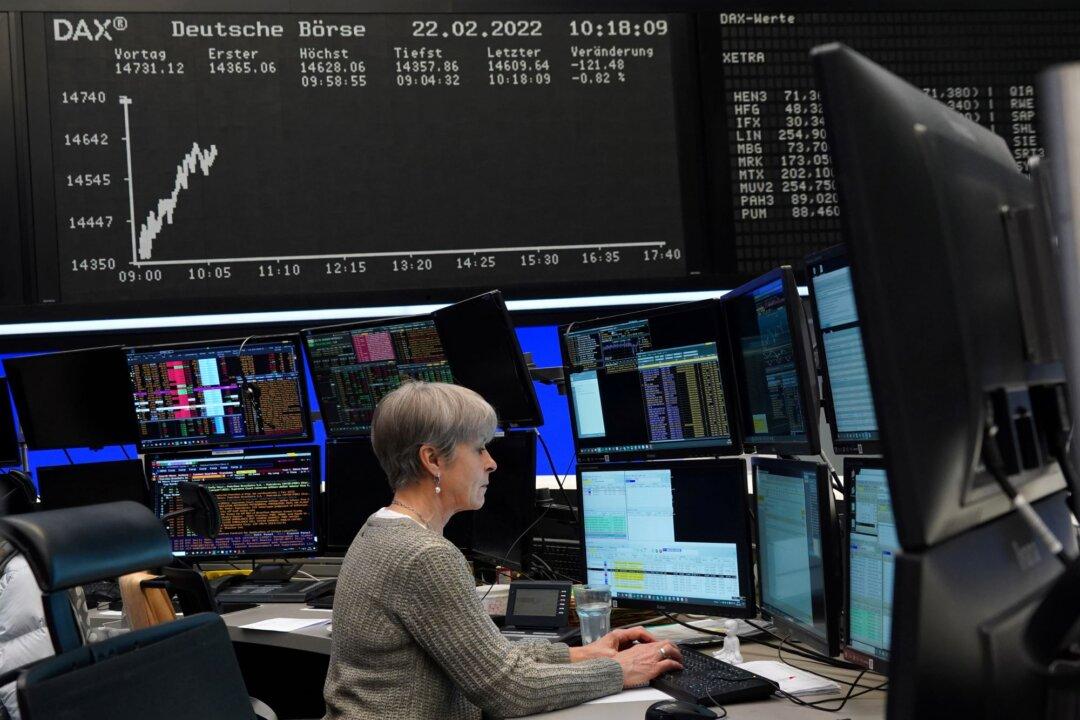LONDON—Stocks lurched downwards on Wednesday as U.S. debt ceiling negotiations dragged on without resolution, stoking a general malaise in markets that saw safe haven assets like the dollar and gold hold near recent highs.
The New Zealand dollar meanwhile tumbled after the central bank caught markets off-guard by flagging that its tightening cycle is over.





